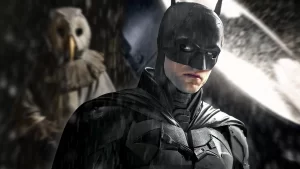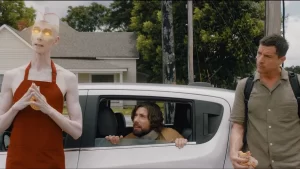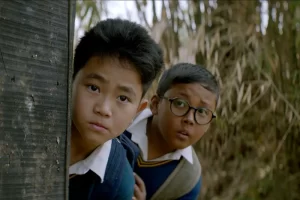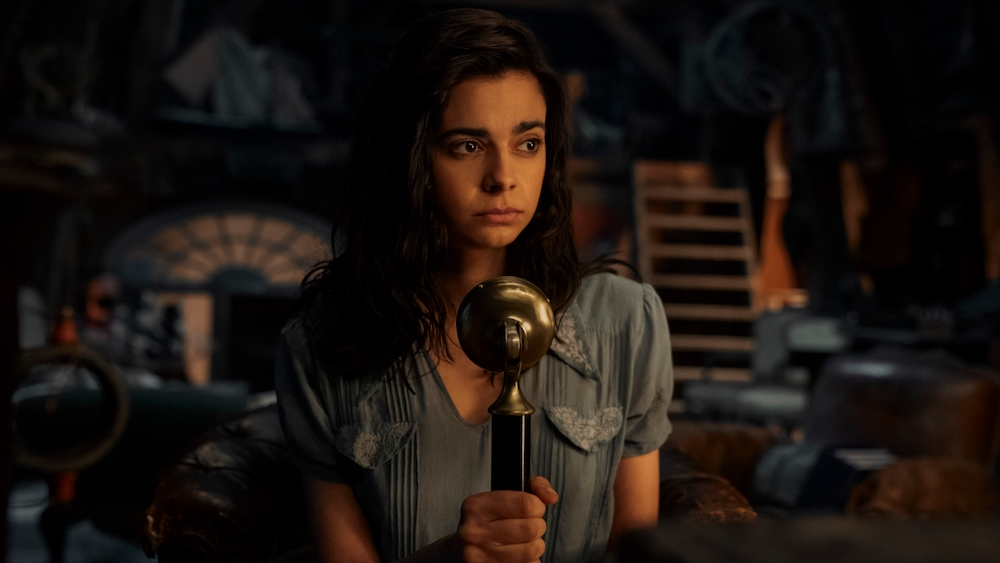
All the Light We Cannot See is not a comfort watch. Based on Anthony Doerr’s Pulitzer-winning novel of the same name, it is adapted into a four-episode limited series. Adapted by Peaky Blinders writer/showrunner Steven Knight and Stranger Things director Shawn Levy, All the Lights We Cannot See deals with moral simplicity and sentiments during an ongoing war. Knight and Levy aim to present an inspirational story beyond prejudices and distance, but instead, it turns out to be another bland adaptation that lacks the desired outcome.
Set in Saint-Malo, Nazi-occupied France, the city is on the verge of American liberation in August 1944. In a townhouse, a blind girl, Marie-Laurie LeBlanc (Aria Maria Loberti) reads Jules Verne over a radio broadcast, waiting for her father, Daniel (Mark Ruffalo), and Uncle Etienne (Hugh Laurie), to come home. In the same town, not very far from her, German soldier Werner Pfennig (Louis Hoffman) listens to her words on frequency 13.10. Their lives are inextricably associated, and they will meet amidst the bombs and ruins. The film follows a chronological back-and-forth structure like Doerr’s novel. Thus, begins the adapted series of All the Light We Cannot See with bombs, radios, secret codes, and hope to free France from the Nazis.
Is It Worth Watching?
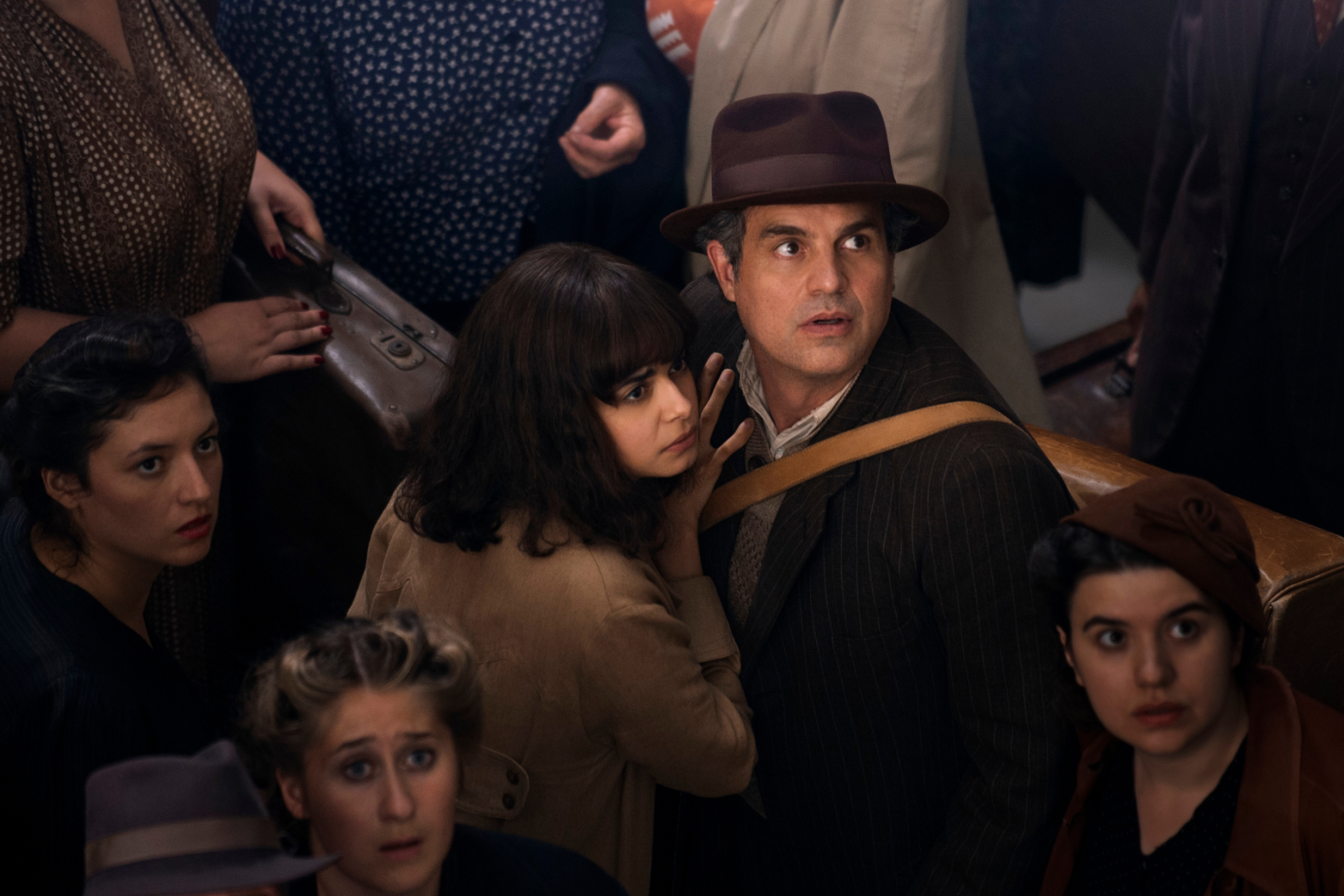
Rating – ★★
Yes, definitely! However, if you want to watch it after reading the book, you will likely feel disappointed with this adaptation. The viewers get recurring flashbacks of young Marie and Werner. Young Marie (Nell Sutton) tries to understand and learn everything from her father. On the other hand, Werner Pfennig is a radio whiz. His excellence catches the attention of an elite Nazi Academy, where Pfennig struggles to survive the cruelty of his Academy seniors. During the times when he was unerringly working for the Nazis to eliminate the illegal radio transmission, his only hope was the professor’s words of kindness. The professor is one thing they have in common.
Marie and his father fled from Paris during the Nazi invasion and take shelter at Madame Manec (Marion Bailey) and Uncle Etienne’s house. By Episode 3, the viewers and Marie learn that Uncle Etienne is the professor. When Daniel reveals he has the Sea of Flames diamond, Etienne and Manec say it’s best if he leaves Saint-Malo. German officer Von Rumpel (Lars Eidinger) is suffering from an illness and wants to obtain the diamond to be immortal, and he thinks it is in Marie’s possession. He catches Marie while she goes out to eat some oysters from a secret place, and almost kills her to get information about the diamond. Werner meets the professor when he goes to Marie’s place with a German soldier, who wants to catch the broadcast owner.
All The Light We Cannot See: Ending Explained
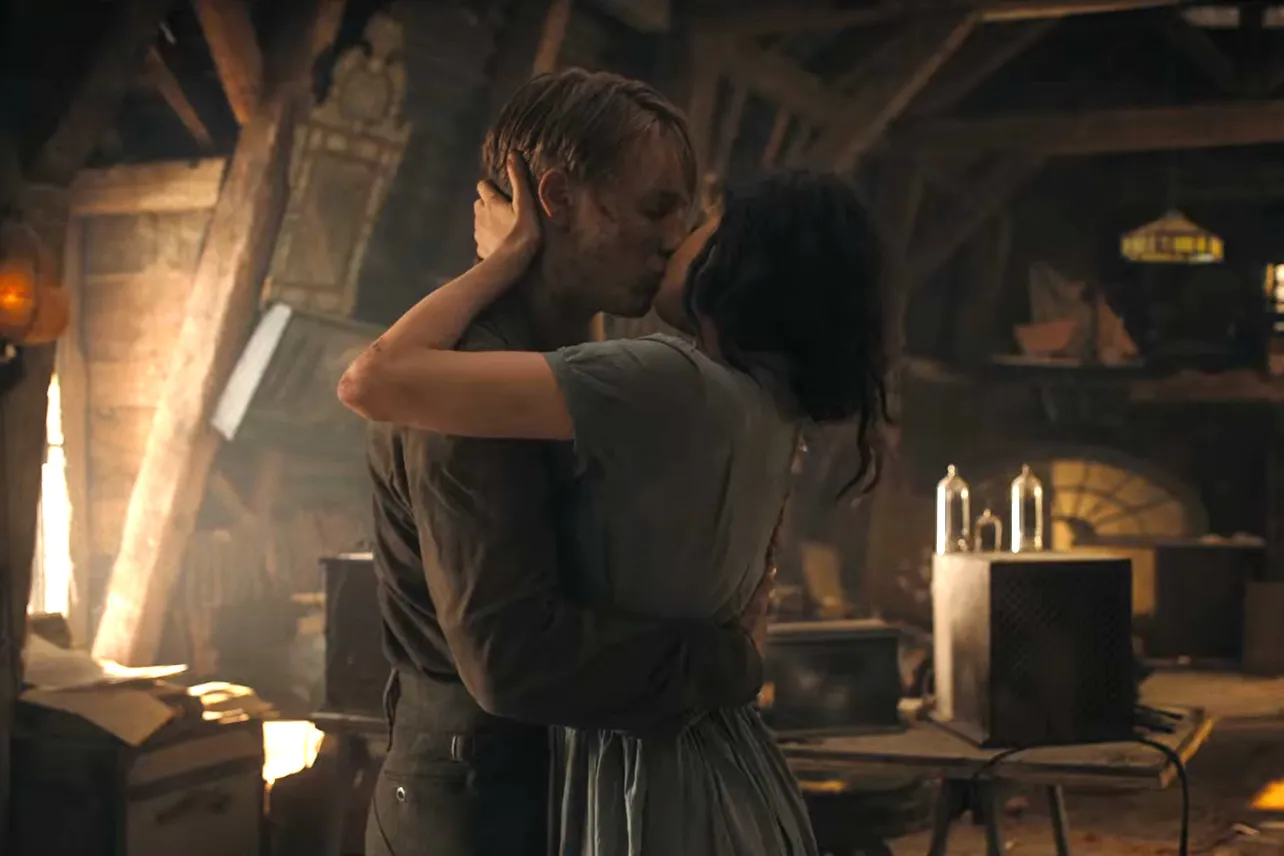
In the end, Rumpel finds Marie’s house, and as she locks herself in a room, he threatens her with a grenade. In turn, Marie counters with a concealed gun. The viewers parallelly witness Etienne and Werner’s struggle. Marie learns that Rumpel killed her father because Daniel didn’t reveal information about the diamond. It adds a sense of poetic justice to Rumpel’s death at Marie’s hands.
With Rumpel’s death, Marie and Werner find the Sea of Flames, hidden within the model of the town. Werner reveals that he was fond of the professor and his words since he was a kid – “The most important light is the light you cannot see.” Werner’s broadcast message to his sister Jutta (Luna Wedler), offers her a beacon of hope. He surrenders himself to the Americans and promises to listen to Marie on the broadcast. Marie casts the precious stone into the sea and the series closes with archival footage of Saint-Malo during the trying time.
All The Light We Cannot See – Verdict

Kudos to the effort of the team in adapting a remarkable book. As someone who has read the book, I urge you to read the book to understand why it won the prestigious Pulitzer. As for the series, it fails to make a similar impact as the book. A more extended version of the story would have made the protagonists memorable beyond parenthood and innocence. The dialogue gets worse as the series progresses and all the nuance of the tale is lost. After watching the series, you would either feel it is ignorantly rushed or tediously slow-paced. The film summons viewers to acknowledge the intricate humanity during wartime while failing to portray much of itself.
You can watch All the Lights We Cannot See on Netflix.
If you have questions regarding All the Light We Cannot See, feel free to ask in the comments below. For more content, stay tuned. As usual, like subscribe, and share our articles as we are trying to build a community of people High On Cinema!


